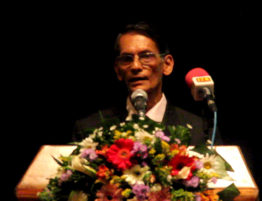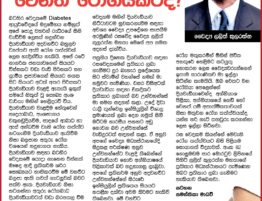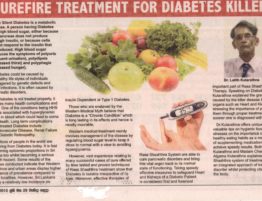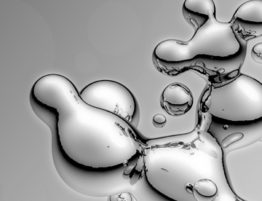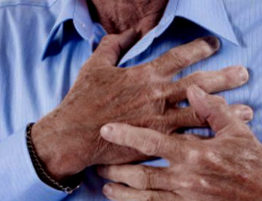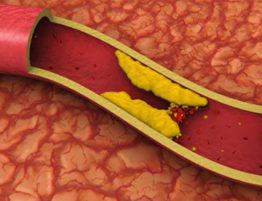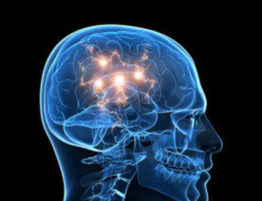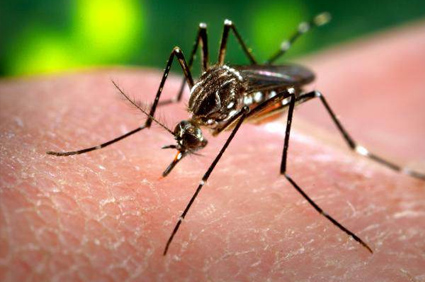
Amidst increasing threat levels of the dengue epidemic in the country, two ‘herbal’ antidotes for the deadly mosquito bite are now claimed in Sri Lanka.
The dengue problem is reported across the country, but is mostly concentrated in the Districts of Colombo, Gampaha & Kandy. Latest statistics show that in the period of January 1 to July 14 this year, 20647 cases of dengue have been reported. The number of deaths: 149!
There are no licenced vaccines at present against dengue and currently, there is also an ongoing effort to develop a dengue vaccine by Australian & Thai researchers (of Queensland University of Technology) but not before 2014. And for a dengue vaccine to be effective, it needs to be tetravalent, meaning the vaccine should be strong enough to interact and manage four bacteria/viruses at once.
It is in this background that two indigenous ‘Herbal Ayurveda’ doctors and one ‘Metal Ayurveda doctor’ separately claimed two antidotes that appear to hit the nail on its head—lift blood platelet levels of dengue patients.
Both ‘cures’ are derived from common native fruits in the country. These are not total cures for dengue but essentially to get the patient across the most critical phase of the disease—that is, dangerously falling blood platelets stage, which if not treated, could be fatal.
The two ‘herbal Ayurveda doctors’ claim that Papaya leaf juice mixed with bee’s honey increases blood platelet levels and restores the patient. Dr. S.M.N. Ameen, attached to the Welipitiya Ayurveda Hospital (58 km south of Capital) said that Papaya leaf juice mixed with bees honey increases platelet levels and the mix has not shown any complications to the 20 Dengue patients he treated and who improved after the juice is given. An Ayurvedic Medical Superintendent Dr. W.K.M. Abeysekara, of Aparekka District Ayurveda Hospital (170 km south of capital) too claimed of the positive benefits of Papaya leaf juice & bee’s honey on dengue victims. However, there is a caveat: in that, what is less known is that the ‘papaya leaf juice cure’ for dengue patients is a common therapy widely used for years across South East Asia, especially in Thailand. Two raw papaya leaves are pounded, and they are squeezed with a cloth to strain and filter the juice. Usually, one leaf gives one tablespoonful of juice and two tablespoonfuls of p-juice is sufficient for a day. To preserve its strength, the juice should be taken raw, without altering, boiling or any additions. No saps nor stems of the papaya leaf should be included-only the leaf should be crushed. The powerful ‘Papain’ enzyme in the papaya leaf has the ability to dissolve proteins and is already used for indigestion and stomach inflammation while another enzyme from the papaya leaf, ‘Chymopapain’ is used successfully in spinal treatments.
The second antidote is also announced by no less than an Ayurvedic practitioner but specifically, a ‘Rasa Ayurveda’ doctor, according to a Sinhala language newspaper published in Colombo. ‘Rasa Ayurveda’ is a variant of the indigenous Ayurveda medicine and is not based on herbs but based on elements such as mercury and gold that are administered in minute dosages, according to Dr. R. Lalith Kularathne, who practices it from Ratmalana, (a southern suburb of Colombo). His prescription? Eat mangoes —minimum three times a day and drink three glasses of ‘white milk’ 750 ml each. He says that according to his observations, this mango and white milk treatment infuses the ‘acids’ and ‘alkaline’ contents that the body requires badly during the rainy seasons. Mangoes and white milk carry them ‘in plenty’.
Dr. Kularathne, has already ‘patented’ the methodology with the Registrar of Companies of Sri Lanka, according to him.
If scientific, independent medical tests of are positive on either of these ‘antidotes’ –or both-, and if Sri Lanka’s Drug Regulatory Authority too clears the way, then they can prevail. However, it is highly improbable that the herbal based papaya juice solution has not already been patented somewhere in South East Asia by now. This will clearly leave Dr. Kularathne on-stage with the challenge of proving the effectiveness of a mango-n-milk supplement that can withstand the deadly dengue show.
Perhaps it does not matter who prevails—so long as the cure cures, thereby shedding some light at the end of the tunnel for a helpless and weary country.
THE ISLAND – By Joseph Thavaraja

